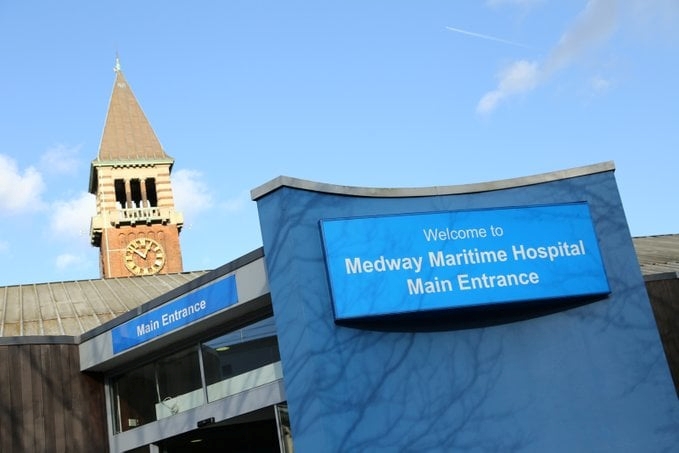Medway NHS Trust completes rapid rollout of virtual ward platform

The Trust has partnered with healthtech provider Feebris, as it aims to enhance the efficiency, experience and outcomes of its services and establish a new benchmark for virtual care across the NHS.
Medway NHS Foundation Trust (NHSFT) has completed its transition to a new digital platform as part of its strategy to scale a full virtual hospital at the heart of an integrated neighbourhood.
Central to the Trusts’ transformation efforts is the principle of ‘measuring what matters’; with virtual wards becoming increasingly common across the NHS, the Trust and its Smart (Surgical, Medical, Acute and Recovery) team – covering Hospital at Home and Virtual Monitoring – will work to identify and evidence the key drivers that justify the business care for a virtual hospital at scale.
The transition to the new platform was completed in only six weeks, without disrupting services or increasing the burden on staff. Within the month of go-live:
- In week 1: 38 patients were admitted.
- By week 3: 93 patients were on the virtual ward (95 per cent capacity).
- By week 4: All staff reported feeling positive about the change.
“Change fatigue is real in the NHS,” said Jackie Hammond, Head of Nursing, Virtual Ward Services (SMART). “The reason we selected Feebris as our partner for scale, after a careful selection process, was the configurability of the technology, their hands-on change management, willingness to jointly evolve processes and commitment to making the transition not just smooth, but energising.”
The leadership of Medway NHSFT has been acting in exploring new models of work to deliver benefits for patients, staff and budgets. Thus far, the implementation has led to financial and time savings across the Trust, including:
- Costs: A day on the Medway virtual ward costs a third of a day in-hospital.
- Efficiency: The nurse-to-staff ratio on the virtual ward is 1:20, compared to 1:5 in hospital. Within this, the average onboarding /me is just 20 minutes.
- Clinical scope: The Trust’s SMART service supports all clinical conditions from all specialities, ensuring a patient-centred approach.
- Capacity: All patients admitted are of an acuity level that would otherwise have required hospitalisation. In just one month, the SMART team saves >1,500 hospital bed days.
The Trust is also the first pilot site to successfully submit data to the Federated Data Platform as part of NHS England’s move to a new minimum data set for virtual wards. This will replace the current SitRep and enable automated daily collection of pseudonymised data nationally.
The virtual ward service at Medway NHSFT has been explicitly designed to support the patient experience, specifically to reduce stress, improve recovery times and reduce the risk of hospital-related complications. Patient feedback has been positive, with most patients stating they preferred receiving care virtually than in a hospital setting. On average, it takes seven minutes for clinicians to complete a virtual health check, and compliance with remote monitoring pathways is currently at above 95 per cent.
Pauline Pearce, an 80-year-old resident of Sittingbourne, who was the first patient to be admitted to the new virtual ward, shared: “Being on the virtual ward meant I could recover in the comfort of my own home, which made such a difference. I felt supported be the nursing team and it gave me peace of mind knowing they were just a call away.”
Remote and virtual care are set to proliferate with the government seeking to shift more care into community settings as part of the 10-Year Plan for Health, and the Trust hopes that its experience can serve as a blueprint for others looking to deliver virtual care services. As Tracey Stoker, Director of Operations at Medway NHSFT, explained: “We’re not just delivering care at home, we’re building the systems, culture and evidence base to support a truly distributed, data-driven and patient-centric virtual hospital.”
